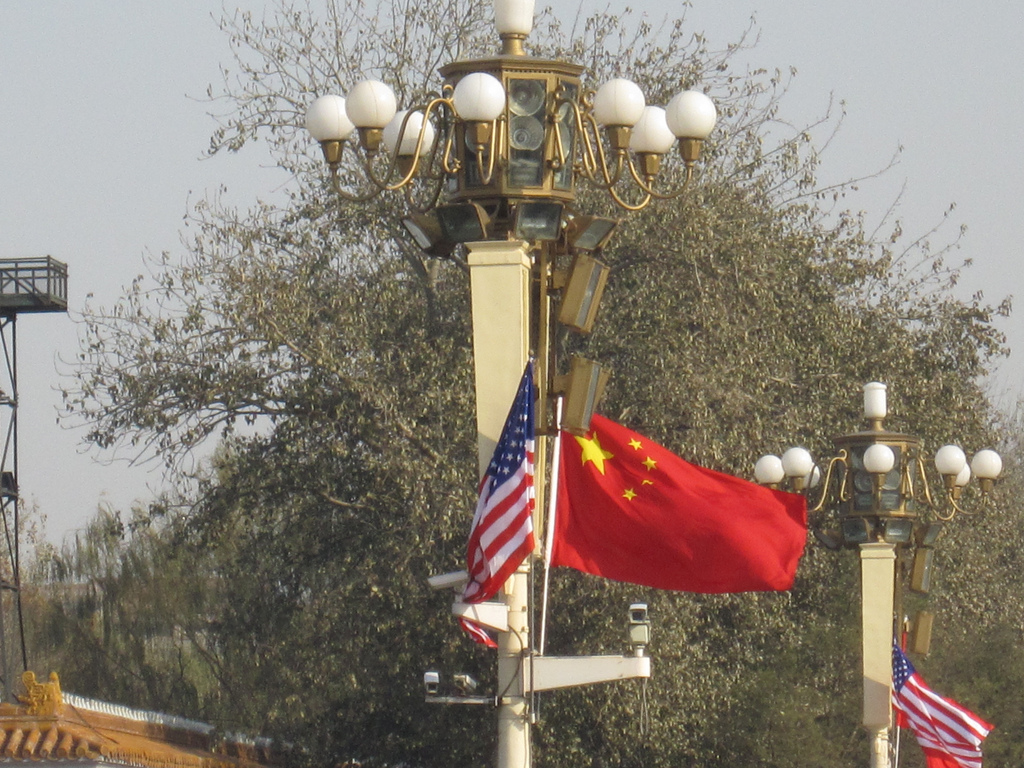WASHINGTON — President Barack Obama and Xi Jingping, the president of The People’s Republic of China, will meet for official talks for the first time in Beijing next month.
In preparation for that meeting, the Center for American Progress, in conjunction with the China Foreign Affairs University, hosted a discussion on U.S.–China relations and invited various American and Chinese subject matter experts to serve as panelists. They’ve engaged in “track II dialogue” – that is, unofficial and non-government – seeking to flesh out some of the issues that the two leaders will likely discuss.
The panelists gathered by the liberal-leaning think tank and the Beijing-based university agreed that 2014 is a critical time for the bilateral relationship. China and the United States have a great responsibility to work toward deepening understanding between the two nations, they said.
So, what are the key issues and where do we stand today?
— Climate Change
Both sides agree that the U.S. and China have similar goals in the area of climate change, with the two countries claiming to have mutual interests. But China’s economy is energy-intensive and coal based, making it the largest emitter of carbon dioxide on an annual basis. However, China is also the largest user of clean energy technology in the world, said Joanna Lewis, energy and climate expert at Georgetown University. China installed more solar technology last year than any other country. China is also moving ahead in the amount of wind power technology and total investments in clean energy, Lewis said. Even so, China and the U.S. are seen by many other countries as large carbon emitters. .
— South China Sea and East China Sea
Disputes over the ownership of an island chain — called the Diaoyu by the Chinese, and the Senkaku by the Japanese and attendant trade routes — have plagued Asian countries for years. China has introduced an Air Defense Identification Zone, and used drones to make repeated intrusions into Japanese administered air and maritime spaces – actions the U.S. views as unhelpful and possibly dangerous.
“What happens after the presidential meeting will be the most interesting,” said Ely Ratner, deputy director of the Asia-Pacific Security Program at the Center For a New American Security. “These types of summits tend to have a moderating effect on Chinese assertiveness when the Chinese are hosting. There has been a moderation in Chinese assertions in the East China Sea recently. Is this a recalibration to fix the problem for good, or is China trying to make nice to have a successful meeting?”
The U.S. panelists questioned both countries’ ability to compromise. In the “venn diagram” of where the U.S. would be willing to accept a solution to the islands’ dispute and where China might budge, there seems to be no overlap, Ratner said.
Wang Yiwei, director of Institute of International Affairs at Renmin University of China, insisted that both the U.S. and China honor freedom of navigation and peaceful resolution of territorial disputes. Wang said it’s easy to blame others. Top leaders should “guide public opinions” to bring understanding of both sides’ goals and to encourage patience, he said.
— Middle East and Terrorism
China’s response to ISIS’s march through Iraq is another development the presidents are expected to discuss during their summit. To date, China has not clarified how or if it plans to combat the terrorist group, Herald said.
The Chinese panelists said their country has many challenges it must deal with at home. But the panelists said China should play a role in world affairs.
“Many areas where we have greater opportunity to cooperate lie a little bit farther overseas,” said Scott Herald of the Rand Corp. For example, coming up in late November, China has an opportunity to pull together with the rest of the international community in discussing nuclear issues involving Iran.
— Asian Allies
The Chinese panelists were concerned that American allies in Asia could drag the U.S. into conflict with China.
“Asian countries economically rely on China but security wise rely on the United States, if the big guys fight each other, difficult to make a choice. Better to have good relations,” Wang said.
U.S. panelists insisted that the U.S. has intensive, diplomatic and military dialogues with its allies. Any notion that the U.S. is taking a reckless attitude toward alliances and not addressing concerns of possible instabilities is mistaken, he said.
Photo Credit: nfalsey, Flickr Creative Commons

